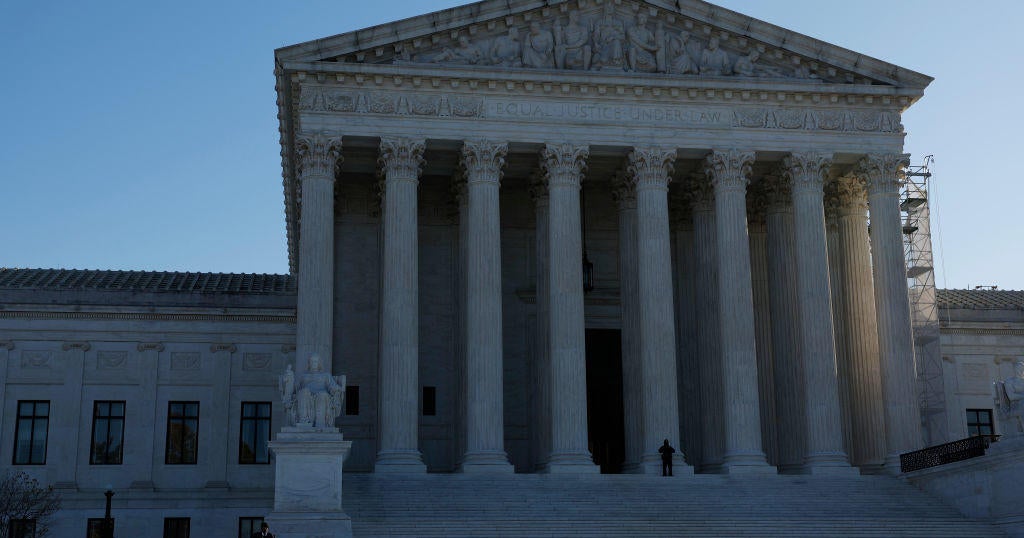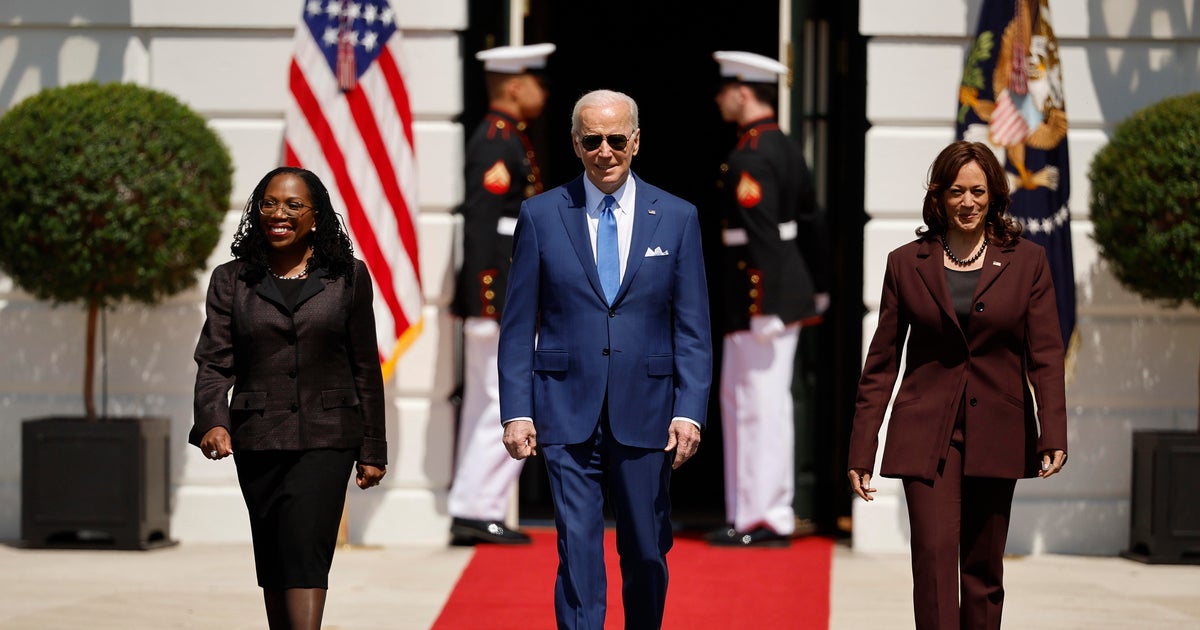Protests begin outside Supreme Court, across U.S. in wake of decision overturning Roe v. Wade
With the Supreme Court decision striking down the precedent that had been in place for nearly 50 years, protests are springing up across the country, with more than 100 scheduled as of Friday.
Millions of young Americans have never lived in a world without the constitutionally protected right to an abortion. The decision in Dobbs v. Jackson that overturned the landmark Roe v. Wade decision could galvanize young people.
CBS News polling found that a greater number of young Americans believe abortion should be legal in their state if Roe v Wade is overturned: 73% of those under 30 believe it should be legal in all or most cases, the most of any age category.
In the immediate wake of the decision Friday morning, both protesters in support and who oppose abortion rights gathered outside the Supreme Court. More were expected to gather both in Washington, D.C. and across the country.
For college student Paxton Smith, abortion will now be the key factor in participating in the 2022 midterm elections.
Smith, a Texas resident, has been advocating for abortion rights since high school. The 19-year-old traveled to D.C. to protest against the court's decision Friday to overturn landmark abortion decision Roe v. Wade, and says that one of her main concerns is a Texas trigger law that imposes criminal penalties for abortion providers and will go into effect in the next 30 days.
"If they are willing to do that to abortion providers, there is no doubt in my mind that they are going to make some type of legislation that criminalizes abortion as well, " Smith told CBS News.
Now that abortion restrictions will be in the hands of the states, Smith says midterm elections have gained an even more important role in the nation's democracy.
"It's extremely important to vote on midterm elections — these state officials are going to be the ones having the most control over these abortion laws in each state," Smith said.
Other young protesters expressed their commitment in heading to the polls as this decision is now taking center stage in the midterm election cycle.
"I believe very firmly that we are going to go out and we are going to take to the polls," Smith said.
Grace Torrans, originally from Virginia, is among the young protesters who believe abortion is a key part of access to healthcare.
"We need to stand up and fight back and do everything that we can in order to just protect our basic human right," Torrans told CBS News on Friday outside the Supreme Court.
Among Torrens' concerns is the lack of access and unsafe abortion resources women across the country could begin to experience.
"It's not going to change the amount of abortions, it's going to change the level of security people have when they are getting an abortion," Torrens said.
Although Torrens, who said she is a member of Gen Z, has always participated in both general and midterm elections, she says this decision could become a catalyst for people like her to take to the polls this November.
"We are much more motivated as a generation … we are a lot more active and we want our voices to be heard and I really hope that we can be the generation that achieves some of the changes that we have been fighting for," she said.
While young people on Friday told CBS News they were protesting in support of abortion rights and believed it would be a key issue in the midterms, there are also groups rallying in celebration of the Supreme Court overturning the landmark decision.
The anti-abortion organization Students for Life, which serves more than 1,200 campus groups in all 50 states and trains thousands of young people, called for rallies in celebration at state capitols across the country on Saturday.
Fencing surrounding the Supreme Court went up ahead of the decision, suggesting law enforcement agencies were preparing for protests that could turn violent. The U.S. Department of Homeland Security warned that threats of political violence, particularly against judges and state officials, will likely "intensify" in light of the Supreme Court's decision to eliminate the constitutional right to an abortion, according to a memo obtained by CBS News, and could last for weeks.
Camilo Montoya-Galvez contributed to this report.







